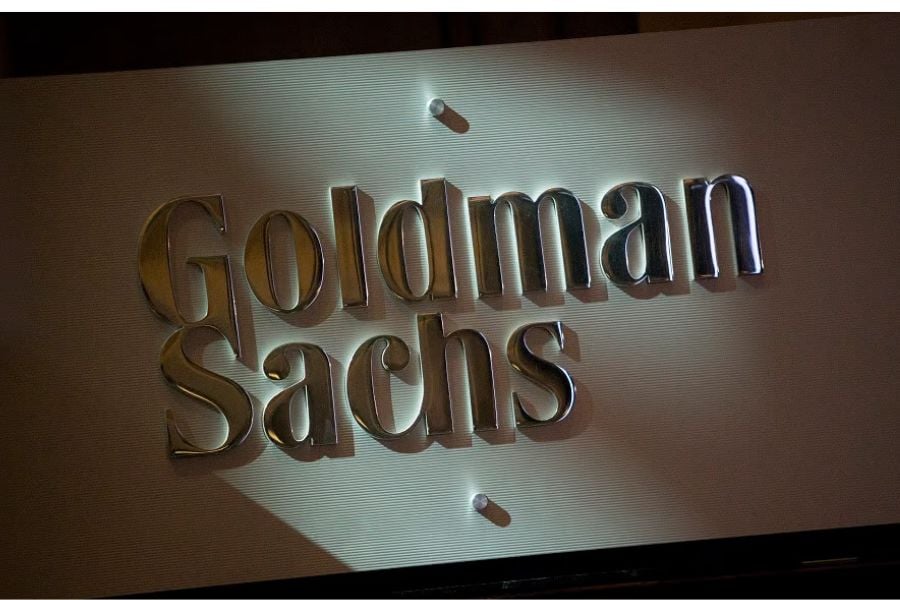

The Consumer Financial Protection Bureau has ordered Apple and Goldman Sachs to pay a total of more than $89 million in penalties and customer restitution related to their Apple Card program.
The federal consumer regulator found that the companies mishandled transaction disputes and misled consumers about interest-free payment plans for Apple products.
That was linked to a tie-up between Goldman and Apple launched in 2019, under which the consumer tech firm introduced an in-house credit card to help stoke demand for iPhones and iPads, among other devices it sells.
"[I]n December 2019, Goldman Sachs and Apple introduced a new feature called Apple Card Monthly Installments, which allows users to finance the purchase of certain Apple devices with Apple Card directly from Apple through interest-free monthly installments, similar to a Buy Now, Pay Later product," the CFPB statement read.
According to the statement published Wednesday, the firms fell short on their duties to customers when systems they developed to handle improper charges or filed disputes failed to address those concerns. Among other shortfalls, the CFPB said Apple failed to forward tens of thousands of Apple Card transaction disputes to Goldman Sachs for investigation, and Goldman did not adhere to legal requirements when handling disputes that were processed. These failures resulted in delayed resolutions for consumers and, in some cases, incorrect negative information being added to credit reports.
The CFPB is requiring Goldman Sachs to pay at least $19.8 million in restitution and a $45 million civil penalty. Apple, meanwhile, must pay a $25 million civil penalty.
“Apple and Goldman Sachs illegally sidestepped their legal obligations for Apple Card borrowers,” CFPB Director Rohit Chopra said in the statement. “Big Tech companies and big Wall Street firms should not behave as if they are exempt from federal law.”
The investigation determined that Apple and Goldman Sachs misled customers regarding the Apple Card Monthly Installments program, which many believed offered automatic interest-free payments on Apple devices. However, some customers were charged interest due to confusion about the enrollment process. In some cases, the interest-free payment option was not visible on Apple’s website when accessed through certain browsers.
In addition, the CFPB found that Goldman Sachs misapplied refunds between customers’ interest-free and interest-bearing balances, resulting in unexpected interest charges. In light of these and other violations, the regulator said Goldman Sachs is prohibited from launching a new credit card unless it provides a credible plan ensuring compliance with federal regulations.
"If Goldman Sachs makes another attempt to enter the credit card market, the CFPB plans to closely police the company to avoid repeat offenses.," the statement said.
It might be some time before that happens. As reported by the Financial Times, the Wall Street giant is currently seeking to exit its partnership with Apple as the bank's push into retail banking has led to years of heavy losses.
In a statement, Goldman said it had exerted all efforts to address concerns within the Apple Card programme, “[working] diligently to address certain technological and operational challenges that we experienced after launch and have already handled them with impacted customers”.
“We are pleased to have reached a resolution with the CFPB and are proud to have developed such an innovative and award-winning product alongside Apple,” Goldman said in a statement published by multiple news outlets.
In a separate widely published statement, Apple similarly said it took action on the issues years ago by "[working closely with Goldman Sachs to quickly address them and help impacted customers.
"While we strongly disagree with the CFPB’s characterisation of Apple’s conduct, we have aligned with them on an agreement," the company statement said, indicating that it's looking to put the incidents behind it and "[continue] to deliver a great experience for our Apple Card customers.”
The companies did not admit or deny the regulator’s findings in court filings.

Relationships are key to our business but advisors are often slow to engage in specific activities designed to foster them.

Whichever path you go down, act now while you're still in control.

Pro-bitcoin professionals, however, say the cryptocurrency has ushered in change.

“LPL has evolved significantly over the last decade and still wants to scale up,” says one industry executive.

Survey findings from the Nationwide Retirement Institute offers pearls of planning wisdom from 60- to 65-year-olds, as well as insights into concerns.
Streamline your outreach with Aidentified's AI-driven solutions
This season’s market volatility: Positioning for rate relief, income growth and the AI rebound
